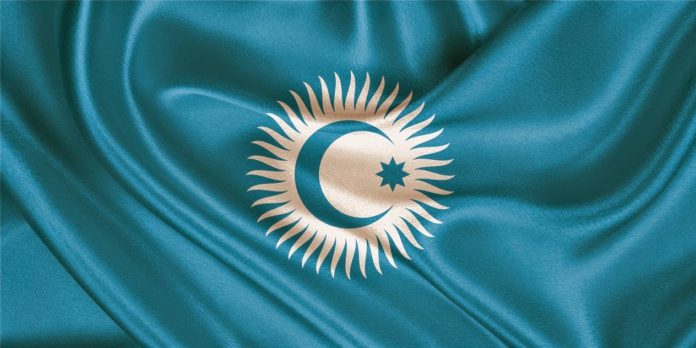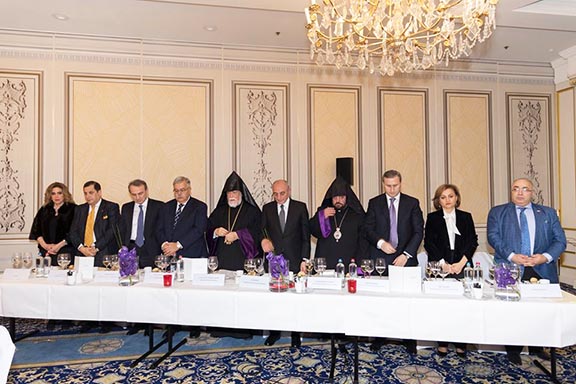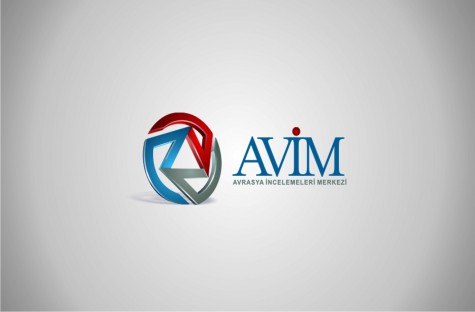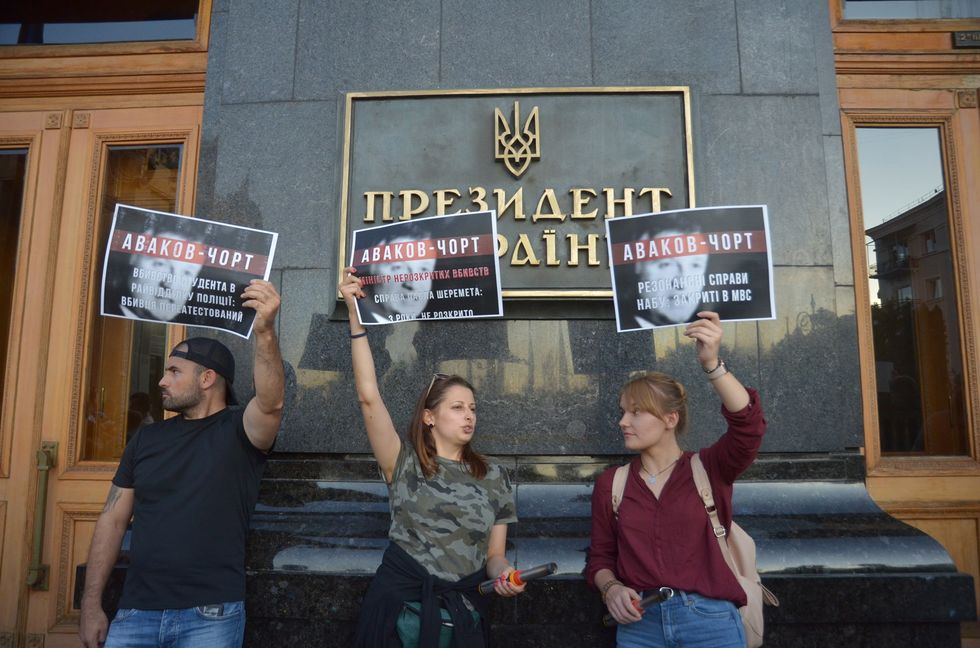There is benefit to analyze developments in Armenia in 2015 by dividing them into two. The ceremonies and events to commemorate the centennial of the Resettlement marked the first half of the past year. While these fell off the radar in the second half, the changes to be made in the Armenian Constitution and the objections to these changes by the opposition parties came to the fore. On the other hand, in the last two months of 2015, the Karabakh issue, and accordingly the national security of the country rose to prominence. We will try to briefly summarize Armenia’s status in 2015 within the context of relations with Turkey and the Karabakh issue.
A lot of effort was put in Armenia to commemorate the centennial of the Resettlement (genocide according to Armenians) in a flamboyant fashion. Therefore, many foreign statesmen were invited to Armenia, but eventually attendance was limited. However, François Hollande’s and Vladimir Putin’s visit to Erivan to attend the ceremonies and the fact that they delivered speeches drew the attention of the public. On the other hand, the attendance of 17 heads of state, 3 parliament speakers and 5 prime ministers to the ceremonies to commemorate the 100th anniversary of the Gallipoli Battles overshadowed the ceremonies held in Erivan in the eyes of the public opinion. It was seen that popular personalities’ visit to Erivan, such as Kim Kardashian, rather drew the attention of the US and was criticized by several circles in Erivan.
The fact that Recep Tayyip Erdoğan, who is the president of a country which rejects the genocide allegations, was invited to attend the ceremonies in Erivan on April 24 proved to be an inappropriate move and led the already tense relations between the two countries to be negatively affected.
The centennial of the Resettlement was flamboyantly commemorated in the Diaspora. It is seen that France and the US stood out in this regard. Indeed, there was high level participation from the government and local administrations to the ceremonies held in France. In the US, on the other hand, despite the high level participation in states with large Armenian population, the lack of interest to the centennial at the federal level, apart from President Obama’s usual message, was a noticeable fact.
The strong reaction by Turkey, especially by President Erdoğan, to the few statesmen who support the Armenian allegation such as Pope Francis, and the possibility of deteriorating bilateral relations rendered the support to genocide claims to be limited and even led several countries to take a step back. For instance, Luxembourgian and Austrian governments made statements dialing down resolutions adopted by their parliaments, the word genocide was not included in resolutions adopted by the Belgian and Bulgarian Parliaments, and a draft resolution was sent back to the commission by the German Bundestag. Furthermore, in France, which is the greatest supporter of the genocide claim, a legal arrangement supported by Armenians to criminalize genocide denial was failed to be implemented.
As part of the efforts to organize centennial events, a commission to determine the legal basis of demands from Turkey was established in Armenia. These demands, which apparently include the recognition of the genocide claim, indemnities from Turkey for the 1915 events, the return of Armenian properties, and perhaps territorial demands, even if symbolic such as Mount Ağrı, were expected to be brought up in 2015. However, as we have mentioned above, it never happened. Furthermore, following European Court of Human Right’s Perinçek decision, it will no longer be easy to bring up demands related to genocide claims.
Other than appeasing the Armenian and Diaspora public opinion, It is impossible to think that bringing up such demands would benefit Armenia. On the contrary, it will cause a deadlock in the already poor relations. It will lead Turkey to further support Azerbaijan and cause Armenia to literally surrender to Russia.
Another negative development for Armenia in 2015 has been ECHR’s exoneration of Doğu Perinçek, who characterizes Armenian genocide allegations as an international lie. Armenia, even though was no need, intervened to the Perinçek case, and became one of the losing parties alongside Switzerland and France when Perinçek won the case. Armenia attempted to hide this failure from its own public by expressing satisfaction due to there being no words expressing doubt about the Armenian genocide in the Grand Chamber’s verdict. Despite what Armenia may claim, stating that there is no Armenian genocide and defending this idea, without insulting Armenians, has become possible across all of Europe. By contrast with this, those who deny the Jewish Holocaust are being penalized in many countries. The ECHR verdict has literally made the Armenian genocide allegations second rate in comparison to the Jewish Holocaust.
Karabakh is another issue in which Armenia has failed this year. No resolution has been found for this conflict since the 1994 ceasefire. The co-chairs of Minks Group (in reality their governments) see this lack of resolution to be in their favor. However, the persistent (because international law is on its side) demands of an increasingly powerful Azerbaijan for the ending of the occupation of Karabakh and other Azeri territories, the probability that the border clashes will escalate, and the fact that Armenia is beginning to look like the losing side in these clashes are all developments to the detriment of Armenia. On the other hand, ECHR’s 16 June 2015 verdict expressing that Karabakh is not an independent entity has gone against the Armenian claims on this issue and has eliminated the possibility of Karabakh’s independence being recognized by other countries. Furthermore, the parliamentary and local elections in Karabakh that have been this year not being recognized by many countries is a development to the detriment of the Karabakh independence argument. Additionally, the Political Affairs Committee of the Parliamentary Assembly of the Council of Europe has adopted a draft resolution that points to Karabakh not being independent and furthermore likens the forceful removal of the Azeris in this region to ethnic cleansing. As expected, the adoption of this draft resolution by the Assembly would be a heavy blow to Armenia’s Karabakh policy. Lastly, the fact that Kazakhstan, Kirgizstan, and Tajikistan; Muslim members of the Collective Security Treaty Organization -that Armenia currently chairs and thinks will provide its security alongside Russia, seem unwilling to support against Azerbaijan constitutes a fiasco for Armenia.
Consequently, for Armenia and Armenians, 2015 has been a year in which genocide allegations gained an international support very much below what was expected, in which these allegations had no effect whatsoever on Turkey, in which official claims against Turkey were failed to be put forth, in which ECHR’s Perinçek case verdict damaged Armenian’s argument for the indisputability of their genocide allegations, and in which serious regressions have been experienced in the Karabakh issue.
It can be seen that Armenia will experience serious crises with Turkey and especially Azerbaijan in 2016 and beyond if it keeps pursuing its current uncompromising policies. Since the Minks Group co-chairs the US, France, and Russia do not want the jeopardizing of peace in the South Caucasus, it is very likely that Armenia will, in the future, be forced the give the concessions with regards to the Karabakh conflict that it does not want to give now. Meanwhile, it should not be forgotten that the resolution or the moving towards the resolution of the Karabakh conflict will bring alongside it the normalization of Turkey-Armenia relations such as the opening of the borders and the establishment of diplomatic relations.
© 2009-2025 Center for Eurasian Studies (AVİM) All Rights Reserved

SARKISIAN’S INVITATION
 THE FUTURE OF THE TURKIC COUNCIL
THE FUTURE OF THE TURKIC COUNCIL
 THE AZERBAIJAN-ARMENIA PEACE PROCESS AND THE IMPACTS OF LOBBIES
THE AZERBAIJAN-ARMENIA PEACE PROCESS AND THE IMPACTS OF LOBBIES
 THE DASHNAKSUTYUN’S MASK SLIPS II
THE DASHNAKSUTYUN’S MASK SLIPS II
 IRAN-CHINA DIPLOMATIC MEETING IN BEIJING
IRAN-CHINA DIPLOMATIC MEETING IN BEIJING
 THE ‘ARMENIAN QUESTION’ IN UKRAINE - II: THE ADVOCATES OF THE ‘ARMENIAN CAUSE’ IN UKRAINE
THE ‘ARMENIAN QUESTION’ IN UKRAINE - II: THE ADVOCATES OF THE ‘ARMENIAN CAUSE’ IN UKRAINE




























